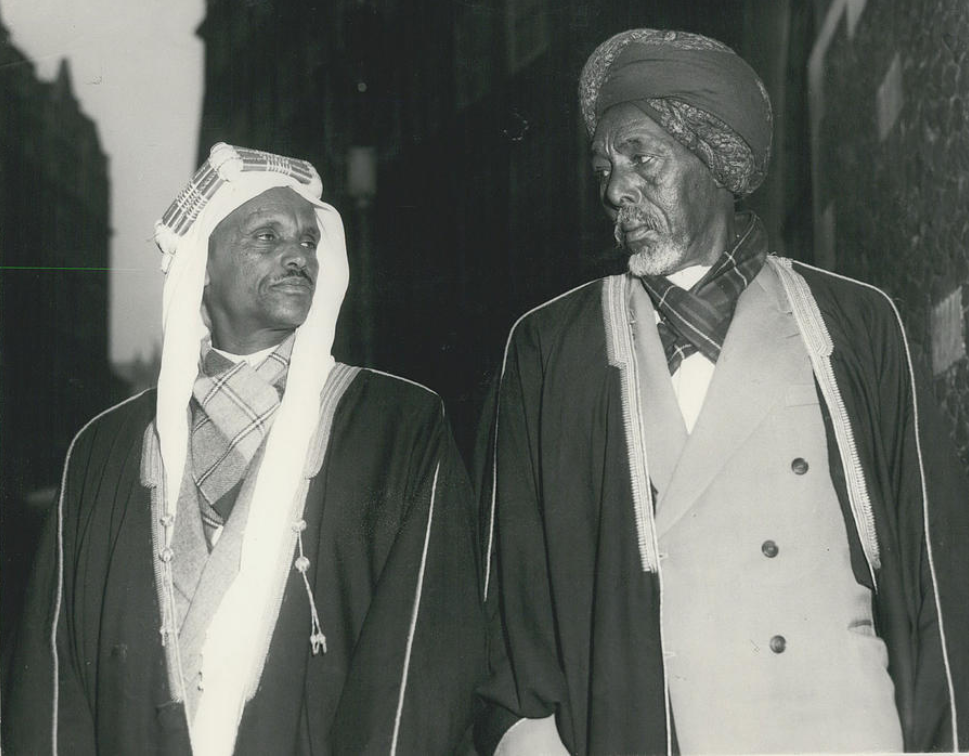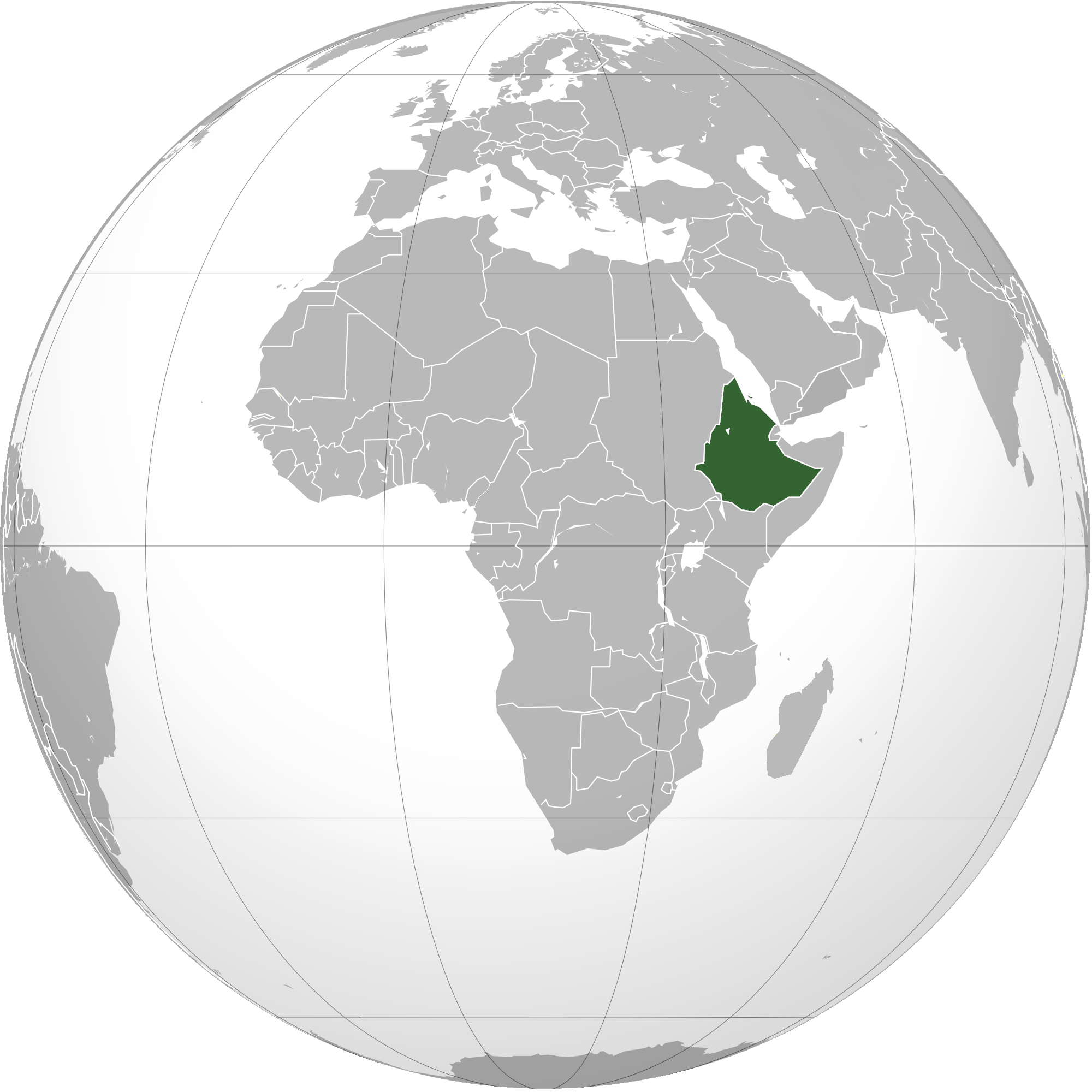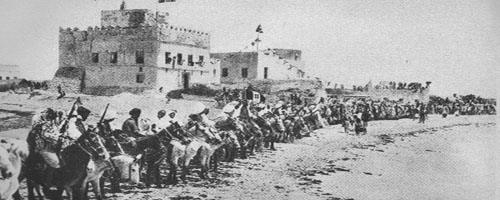|
Abdulrahman Deria
Abdulrahman Garad Deria (; 1910 – early 1970s) was the Sultan of the Habr Awal Isaaq clan and second Habr Awal leader to adopt the Sultan title rather than '' Garaad''. An influential figure that was heavily involved in advocating for the people of British Somaliland and their rights. Background Hailing from the Ahmed Abdalla branch of the Habr Awal Saad Musa, Abdulrahman was crowned Sultan after his father Sultan Dirriye's death. Sultan Abdulrahman was very much like his father filling the role of a peacemaker, however he was much more active in protectorate affairs. Isamusa split During his reign the Isamusa would split and crown their own Sultan although continuing to recognize Abdulrahman as their ultimate authority of the Habr Awal. When the Eidagale attempted to raid the Isamusa, a son of the Habr Yunis Sultan joined the raid and when the raiders were pursued he was killed. The Sultan of the Habr Yunis approached Abdulrahman to resolve the dispute and wanted him to c ... [...More Info...] [...Related Items...] OR: [Wikipedia] [Google] [Baidu] |
Sultan
Sultan (; ', ) is a position with several historical meanings. Originally, it was an Arabic abstract noun meaning "strength", "authority", "rulership", derived from the verbal noun ', meaning "authority" or "power". Later, it came to be used as the title of certain rulers who claimed almost full sovereignty (i.e., not having dependence on any higher ruler) without claiming the overall caliphate, or to refer to a powerful governor of a province within the caliphate. The adjectival form of the word is "sultanic", and the state and territories ruled by a sultan, as well as his office, are referred to as a sultanate ( '. The term is distinct from king ( '), though both refer to a sovereign ruler. The use of "sultan" is restricted to Muslim countries, where the title carries religious significance, contrasting the more secular ''king'', which is used in both Muslim and non-Muslim countries. Brunei, Malaysia and Oman are the only sovereign states which retain the title "sultan" ... [...More Info...] [...Related Items...] OR: [Wikipedia] [Google] [Baidu] |
Ethiopian Empire
The Ethiopian Empire, historically known as Abyssinia or simply Ethiopia, was a sovereign state that encompassed the present-day territories of Ethiopia and Eritrea. It existed from the establishment of the Solomonic dynasty by Yekuno Amlak around 1270 until the 1974 Ethiopian coup d'état, 1974 coup d'état by the Derg, which ended the reign of the final Emperor, Haile Selassie. In the late 19th century, under Emperor Menelik II, the Menelik II's conquests, empire expanded significantly to the south, and in 1952, Federation of Ethiopia and Eritrea, Eritrea was federated under Selassie's rule. Despite being surrounded by hostile forces throughout much of its history, the empire maintained a kingdom centered on its Orthodox Tewahedo, ancient Christian heritage. Founded in 1270 by Yekuno Amlak, who claimed to descend from the last Kingdom of Aksum, Aksumite king and ultimately King Solomon and the Queen of Sheba, it replaced the Agaw people, Agaw Zagwe Kingdom, kingdom of the Za ... [...More Info...] [...Related Items...] OR: [Wikipedia] [Google] [Baidu] |
Somalian Muslims
Horn of Africa * Somali Peninsula, a region of East Africa, also known as "The Horn of Africa" * Somalis, an inhabitant or ethnicity associated with Greater Somali Region ** Greater Somalia ** Somali language, a Cushitic language ** Somali culture ** Somali cuisine ** Proto-Somali, the ancestors of modern Somalis ** Somali, plural of Somalo, former Somali currency * Somali Plate, a tectonic plate which covers the eastern part of Africa *Somalia, a country in the Horn of Africa * Somaliland, an unrecognised state in the Horn of Africa, recognised internationally as de jure part of Somalia * Somali Region, a Somali-inhabited region of Ethiopia * North Eastern Province (Kenya), a Somali-inhabited region of Kenya Other uses * Somali, a member of the Somalia Battalion, a pro-Russian military group. * , a British destroyer * Somali cat, a cat breed * Somali, a character in the manga series '' Somali and the Forest Spirit'' See also * * * Proto-Somali Proto-Somalis were the ancien ... [...More Info...] [...Related Items...] OR: [Wikipedia] [Google] [Baidu] |
Michael Mariano
Michael Mariano () (1914-1987) was a Somali politician and businessman best remembered for leading a delegation to UN Headquarters in New York City and advocating for the return of the Somali inhabited Haud reserved area to Somali administration from the Ethiopian Empire. A notable member of the Somali Youth League, Mariano was fluent in Somali, Arabic and English. Biography Early life Michael was born in Berbera, British Somaliland in 1914 into the Uduruxmiin sub-division of the Habr Je'lo Isaaq clan. He soon lost his father at an early age. His mother moved to Aden and Mariano was raised as by a Catholic mission in Aden Colony. He would go onto join the civil service in British Somaliland and form a men's political club in Burao by 1936. Advocacy in British Somaliland Protectorate and Ethiopia Mariano would emerge on the big stage after his successful business enterprise in Dire Dawa. Meeting Somali Youth League leaders, his expertise was sought out and Michael would join the ... [...More Info...] [...Related Items...] OR: [Wikipedia] [Google] [Baidu] |
Somali Aristocratic And Court Titles
This is a list of Somali aristocratic and court titles that were historically used by the Somali people's various sultanates, Realm, kingdoms and empires. Also included are the honorifics reserved for Islamic notables as well as traditional leaders and officials within Somali customary law (''xeer''), in addition to the nobiliary particles set aside for distinguished individuals. Monarchs and aristocrats Below is a list of the Court (royal), royal court Royal and noble ranks, titles historically retained by the Somali Monarchy, monarchies and Aristocracy, aristocracies. Male titles Kings or Rulers *Suldaan: From the Arabic language, Arabic for Sultan or English "Ruler". Very common title for rulers in the pre-colonial and colonial periods; used throughout the Somali territories, particularly by the Isaaq. Famous Sultans include Fakr ad-Din, the first Sultan of the Sultanate of Mogadishu, who built the 13th-century Fakr ad-Din Mosque; Nur Ahmed Aman, Maryam Abdi the queen of Ga ... [...More Info...] [...Related Items...] OR: [Wikipedia] [Google] [Baidu] |
Army Of The Ethiopian Empire
The army of the Ethiopian Empire was the principal Army, land warfare force of the Ethiopian Empire and had naval and air force branches in the 20th century. The organization existed in multiple forms throughout the history of the Ethiopian Empire from its foundation in 1270 by Emperor Yekuno Amlak, to the overthrow of the monarchy and Emperor Haile Selassie in 1974 by members of the Ethiopian army. Due to the country's position along multiple trade routes and its maintenance of independence against multiple Islamic and colonialist invasions lead to multiple conflicts against numerous major countries including the Ottoman Empire, Ottomans, Egyptians, British, and Italians. European contact with the Ethiopians in the 1500s brought the first firearms to the country although attempts to arm the imperial army with gunpowder weapons did not happen until the early 1800s. The Ethiopians attempted to develop modern weapons internally, but after a British expedition to the country resulte ... [...More Info...] [...Related Items...] OR: [Wikipedia] [Google] [Baidu] |
Somali Armed Forces
The Somali Armed Forces are the military forces of the Federal Republic of Somalia. Headed by the president as commander-in-chief, they are constitutionally mandated to ensure the nation's sovereignty, independence and territorial integrity. In 1990 the Armed Forces were made up of the Army, Air Force, Air Defence Force, and Navy. From the early 1960s to 1977, the period when good relations existed between Somalia and the Soviet Union, the Armed Forces had the largest armored and mechanized force in sub-Saharan Africa. Due to Barre's increasing reliance on his own clan, splitting the Armed Forces along clan lines, and the Somali Rebellion, by 1988 they began to disintegrate. By the time President Siad Barre fled Mogadishu in January 1991, the last cohesive army grouping, the 'Red Berets,' had deteriorated into a clan militia. An unsteady rebuilding process began after 2000, and gained pace after the Djibouti Agreement of 2008. The northeastern region of Puntland maintains it ... [...More Info...] [...Related Items...] OR: [Wikipedia] [Google] [Baidu] |
Somali Region
The Somali Region (, , ), also known as Soomaali Galbeed () and officially the Somali Regional State, is a Regions of Ethiopia, regional state in eastern Ethiopia. It is the largest region of Ethiopia. The state borders the Ethiopian regions of Afar Region, Afar and Oromia to the west, as well as Djibouti to the north, Somaliland to the northeast, Somalia to the east and south; and Kenya to the southwest. Jijiga is the capital of the state. The Somali regional government is composed of the executive branch, led by the President; the legislative branch, which comprises the State Council; and the judicial branch, which is led by the State Supreme Court. History What is now the Somali Region was part of the Menelik II's conquests, conquests of Menelik II in the late 19th century. The Somali Region formed a large part of the pre-1995 provinces of Hararghe, Bale Province, Ethiopia, Bale and Sidamo Province, Sidamo. The population is predominantly Somali (ethnicity), Somali, an ... [...More Info...] [...Related Items...] OR: [Wikipedia] [Google] [Baidu] |
Somali Republic
The Somali Republic (; ; ) was formed by the union of the Trust Territory of Somaliland (formerly Italian Somaliland) and the State of Somaliland (formerly British Somaliland). A government was formed by Abdullahi Issa Mohamud and Muhammad Haji Ibrahim Egal and other members of the trusteeship and protectorate administrations, with Haji Bashir Ismail Yusuf as President of the Somali National Assembly and Aden Abdullah Osman Daar as President of the Somali Republic. On 22 July 1960, Daar appointed Abdirashid Ali Shermarke as prime minister. On 20 July 1961 and through a popular referendum, Somalia ratified a new constitution, which was first drafted in 1960. The new constitution was rejected by Somaliland. The administration lasted until 1969, when the Supreme Revolutionary Council (SRC) seized power in a bloodless coup and renamed the country the Somali Democratic Republic. History Popular demand compelled the leaders of Italian Somaliland and British Somaliland ... [...More Info...] [...Related Items...] OR: [Wikipedia] [Google] [Baidu] |







